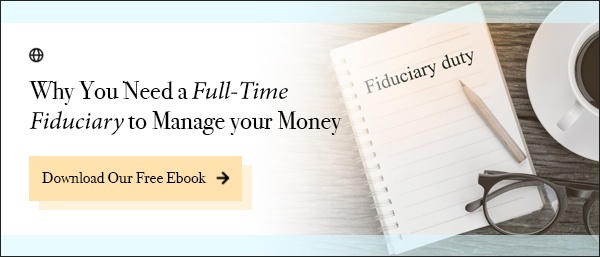Global View Investment Blog
4 Misconceptions Wall Street (and Discount Brokerage) Wants You to Believe
Why do so many people invest with big firms? Because the firms spend a lot of money trying to make investors believe they are the better choice. Because it’s a confusopoly, preying on investors’ lack of knowledge to make a profit. And because investors don’t know any better. They just aren’t properly educated.
While we can’t do anything to make these big powerhouse firms change their ways, we can help educate investors so they understand the truth and, when searching for a Greenville SC financial advisor, how a smaller, independent firm may be the better choice.
Here are 4 major misconceptions that many investors believe. And the truth behind the myth.
Misconception #1: Bigger Firms are Better Because Their Name is Well-Known
This is important: A big-name firm is widely known because they have a huge advertising budget to get their name out – not because they’re the best and clients are spreading the word!
And why would you want to work with a firm because of their advertising budget?
Investors do it, because they’re unaware that this is what they are paying for.
Instead of looking for a well-known name, investors should really be focusing on what registrations these firms hold.
High-quality independent firms and advisors are Registered Investment Advisors (RIAs) or Investment Advisor Representatives (IARs). RIAs are firms. IARs are financial advisors who are registered with RIAs. These registrations permit firms and professionals to provide financial advice and ongoing services for fees. RIAs are registered with the Securities and Exchange Commission or your State Securities Commissioner.
Doesn’t it make more sense to trust your hard-earned money with a credentialed firm than with a firm that has a well-known name?
Some investors also get caught up on the name of the person behind the firm – that might be a well-known name too. But if you take a look at who owns a small independent firm in your area, you might be even more impressed.
Small firms like Global View don’t have thousands of shareholders, boards of directors or layers of executives that they must please. In fact, at Global View, the professionals who work at the firm own the firm! At a large brand-name firm, chances are you will never even meet the owner or a partner at the firm let alone work with him or her. It’s just a name behind a name. At a smaller firm, the advisor might live in your area, understand the programs available to you and even invest in the same products suggested to you.
Small firms may also follow a fiduciary rule. RIAs and IARs are financial fiduciaries who are held to the highest ethical standards in the industry. They are required by law to put your financial interests ahead of their own. Stockbrokers are not fiduciaries and are held too much lower ethical standards. Neither are discount brokerage firms. They make a lot of money by taking a share of fund fees and from commissions.
You might also be interested to know that many of the advisors at an independent firm came from Wall Street. For example, the Greenville SC financial advisors who work at Global View once worked for major Wall Street firms that pressured them to sell products that made the most money for the firms. Our advisors, including me, left so they could do what was best for their clients with no pressure from branch managers to sell particular products.
Big public firms on the other hand typically have to satisfy the needs of shareholders, boards of directors, executives, managers, advisors … and then their clients. Whose needs come first? Whose needs come last? They have a fiduciary duty to put their shareholders’ interest before their clients’ interest!
Small independent firms do not have all of those layers. It’s you and the principles at the firm. They have to meet your expectations or you can terminate their services.
Misconception #2: Investors Are Safer Investing With Big Firms Because They Have a Lot of Clients
The sad truth is that many Wall Street firms actually rip-off their clients. There are 4 major reasons for this:
- There is a lot of overhead
- Executives have to meet shareholder expectations for growth
- Executives want bigger bonuses
- Executives have no meaningful consequences
You also might not realize that company assets are often used to pay the fines. That means you!
But how can small firms provide sophisticated advice?
Wall Street firms would like you to believe they are your only source for sophisticated advice and services. But that is simply not true. Independent advisors may have even greater access to high-quality research because they are not limited to reports from in-house analysts.
Before hiring a Greenville SC financial advisor, make sure you do your homework!
Misconception #3: Brand Names are Easier to Find, So They Must Be Better
While it’s true that smaller firms are sometimes harder to find, this simply comes down to a firm’s advertising budget. Not their skills. Not their credentials. Not their experience. The good news is that in age of the Internet, this trend is changing.
The real reasons smaller firms are harder to find are usually because:
- They have limited marketing budgets
- They spend most of their time advising current clients
- Most of their clients are referred to them
This should make an investor want to work with them, not judge them and label them as bad firms.
Misconception #4: I Saw it on TV, So it Has to be True
Sadly, many investors still believe what they see on television. However, the headlines of major publications tell a different story.
Some of the biggest firms on Wall Street have paid billions of dollars – yes, billions – in fines for cheating clients.
Check out a firm’s record instead of making a decision based on the headlines. This can be a costly mistake.
Why Doing It Yourself Can Be Dangerous
Sure, handling your finances might sounds like the most reasonable and safest option – you won’t choose the wrong advisor and you’ll save money. But will you really?
Remember your chimp (it’s not an insult, I have one too!). Don’t let your chimp convince you that you are a great investor or that you can do everything yourself. These are two of the major ways investors sabotage themselves.
Having been doing this for more than 20 years, the global investment advisors here at Global View have seen about everything. We know our clients’ tolerance for risk, and we can coach them on how much they can expect their portfolios to fluctuate in the short term.
If you still think you can do it better on your own, make sure you find a psychometric risk assessment, learn more about expected upside and downside volatility, educate yourself on the effect of downside risk when withdrawing funds (instead of buying unnecessary insurance) and read up on behavioral psychology (I suggest reading Kahneman’s “Thinking Fast and Slow” and Steve Peters’ “The Chimp Paradox”). Of course, you should also research the ins and outs of Social Security and estate planning procedures! And be very careful before talking to any salesmen, especially insurance salesmen!

Written by Ken Moore
Ken’s focus is on investment strategy, research and analysis as well as financial planning strategy. Ken plays the lead role of our team identifying investments that fit the philosophy of the Global View approach. He is a strict adherent to Margin of Safety investment principles and has a strong belief in the power of business cycles. On a personal note, Ken was born in 1964 in Lexington Virginia, has been married since 1991. Immediately before locating to Greenville in 1997, Ken lived in New York City.
Are you on track for the future you want?
Schedule a free, no-strings-attached portfolio review today.
Talk With Us






